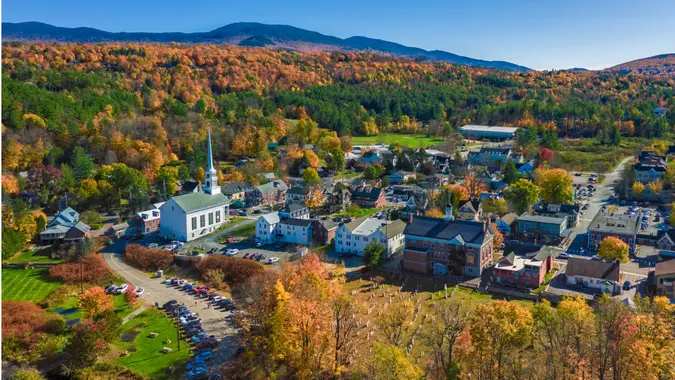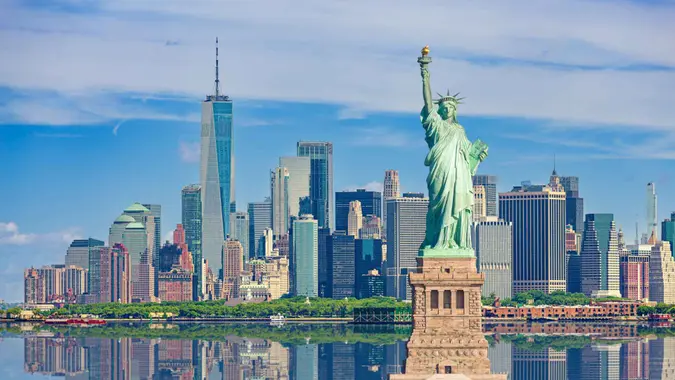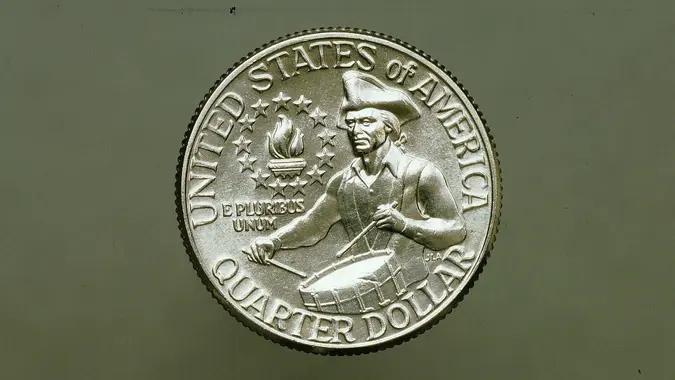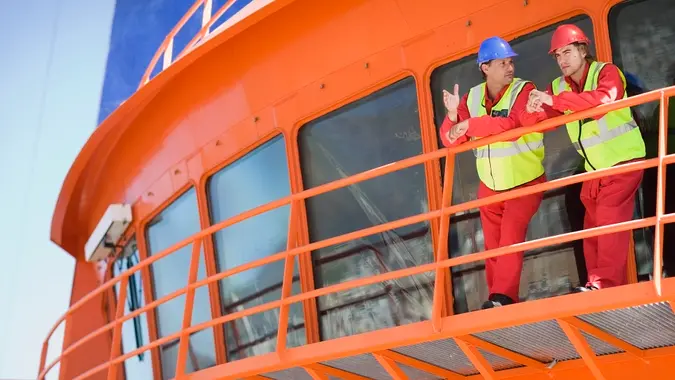How Much Cash You Need Stashed in Case of a Natural Disaster
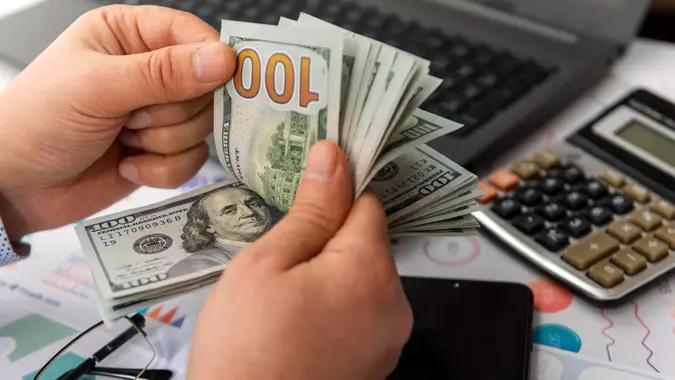
Commitment to Our Readers
GOBankingRates' editorial team is committed to bringing you unbiased reviews and information. We use data-driven methodologies to evaluate financial products and services - our reviews and ratings are not influenced by advertisers. You can read more about our editorial guidelines and our products and services review methodology.

20 Years
Helping You Live Richer

Reviewed
by Experts

Trusted by
Millions of Readers
You never want to think it’s going to happen to you, but natural disasters can strike anywhere at any time. In fact, there have been 15 weather and/or climate disaster events each with losses greater than $1 billion in the U.S. last year, according to the National Centers for Environmental Education.
After making it through these terrifying situations, you need cash on hand to provide access to necessities like food, water and shelter. Here’s some more information about how much to keep on hand and other financial help to get you through this hard time.
How To Prepare For a Natural Disaster With Cash on Hand
Michael Gilmore, co-founder of the Money Awareness and Inclusion Awards, has experienced this firsthand, as his house burned down in a forest fire in 2010.
To prepare for a natural disaster, he advised keeping some cash in the house, but most in a bank account. Specifically, he recommended putting these funds in a savings account with ATM access.
“One of the fundamental starting points for any individual personal finance plan is to have enough money for an emergency fund — often projected to be between three and six months of spending ideally,” he said. “This should be kept in a safe place, where it can be accessed.”
Combined, he said if you have an emergency fund that covers a few months of expenses and insurance, you should be better off than most people. However, some experts believe you should keep a little more cash than usual at home for situations like this.
Cash is king during a natural disaster, according to Lyle Solomon, principal attorney at Oak View Law Group.
“Most networks would be down — there would be no way to use Apple Pay, Venmo or Google Pay,” he said. “Banks and ATMs won’t be able to help as much as they usually do, due to the disaster.”
Consequently, he said having cash on hand can be a lifesaver during this time. Since natural disasters like earthquakes, snowstorms, super droughts and wildfires are possible — and even likely to happen — he said having a goal or plan in place in case of an emergency is a must.
When making a disaster savings plan, Soloman recommended having the money readily available. He agreed with Gilmore that it’s a good idea to have a mix of cash at home and savings in the bank.
“Have at least $2,000 saved in cash and the rest in a savings account,” he said. “It would help if you had cash to cover mandatory or necessary expenditures.”
He categorized shelter, fuel, food, water and medicine as necessities you would want to include in your emergency financial planning. For example, the average U.S. hotel room costs $159.08 per night, as of July 2022, according to STR, a global hospitality data company.
“This will be different for each person based on how prepared they are or how likely they think a disaster might happen,” he said. “Even if you can’t save as much as $2,000, then try to save $1,000.”
Along with keeping cash on hand, here are some other financial tips to get you through a natural disaster.
Choose Your Bills Wisely
Convenience is key during a natural disaster, so Solomon recommended being mindful of the denomination of the bills in your emergency fund, as there will likely shortage of change.
“It would be best if you split your emergency cash into smaller bills so that you don’t have problems paying for necessities that cost less than $20,” he said. “This step is important because, during an emergency, you might not get change for something you buy with a $20 bill that costs $2, and that $2 item becomes costlier than it should be.”
Remember Inflation
As for the portion of your emergency fund kept in the bank, Solomon advised putting it in a savings account, so it is affected by the rise of inflation during a catastrophic event.
“It is recommended that you save at least two to three months’ worth of expenses that you usually spend, including mortgage payments, rent, utility bills, credit card payments and other necessities,” he said.
When budgeting, Solomon also said to remember that prices tend to increase in the event of a natural disaster.
“During an emergency, gas prices, the cost of water and other such necessities will rise due to inflation,” he said. “It is best to consider the expenses per person and prepare accordingly.”
Think About Insurance
Gilmore said having insurance is vital to recovering from this type of situation.
“If there is really any chance of natural disaster in your area, you should take the maximum and re-price for inflation every year,” he said. “This is what we did for our house, and still were only just fully covered. It is very easy for building cost inflation to outpace insurance totals.”
Grab Your Other Financial Assets
If you need to evacuate, Solomon also said it’s important to take paperwork for any bonds, mutual funds and other assets with you.
“This way, you will have more savings in different forms and won’t be penniless,” he said.
Ultimately, he said having ready access to funds is a significant factor in how well you can recover from a natural disaster.
“The idea is not to get overwhelmed and to have a plan in mind if a disaster occurs,” he said. “The government can provide some help, but in the end, you are responsible for yourself and your family.”
Hopefully, a natural disaster isn’t headed your way, but if it is, being prepared is the key to getting past this traumatic event.
More From GOBankingRates
 Written by
Written by  Edited by
Edited by 









